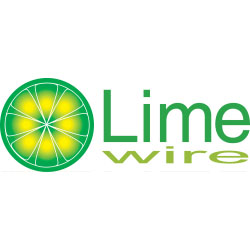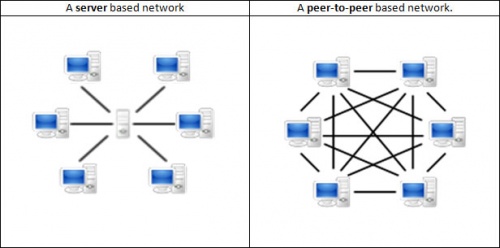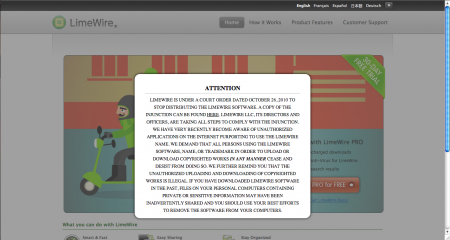Difference between revisions of "Limewire"
(→See Also) |
|||
| Line 51: | Line 51: | ||
==Ethical Issues With Limewire== | ==Ethical Issues With Limewire== | ||
The problems associated with P2P file sharing depends on how the software is used. Some artists allow their music to be freely available on the file sharing services and in these instances, LimeWire is perfectly legal. But for the most part, copyright laws protect original works and individuals who reproduce, distribute, or receive copies without consent may be in violation of copyright laws. | The problems associated with P2P file sharing depends on how the software is used. Some artists allow their music to be freely available on the file sharing services and in these instances, LimeWire is perfectly legal. But for the most part, copyright laws protect original works and individuals who reproduce, distribute, or receive copies without consent may be in violation of copyright laws. | ||
| + | |||
| + | Another ethical concern with Limewire was the ease with which fake files and viruses could be distributed to naive users. A user could try to download a song or movie and instead get a totally different file, which could be anything from hardcore pornography to a virus that could potentially destroy the user's system. Early iterations of the Limewire software and the lack of experience that the average user had with P2P software and methods of safe downloading made Limewire a prime vector for internet viruses <ref>Beware of Limewire viruses and trojans - Kokey Technology | http://www.kokeytechnology.com/free-softwares/file-sharing-programs/beware-of-limewire-viruses-and-trojans-sample-limewire-virus-video/</ref> | ||
===Copyright & Legal Issues=== | ===Copyright & Legal Issues=== | ||
Revision as of 02:14, 12 December 2012
|
LimeWire is a peer-to-peer(P2P) program designed for the Java Platform, which uses the Gnutella network to locate and transfer files. Limewire is free software that is released under the GNU General Public license. It can run on Windows, Mac OSX, Linux, and other operating systems that work on the Java Platform. Although Limewire is technically a free software, a Pro version was released by the company Limewire LLC, and offers somewhat more functionality than the free version.[1] On Tuesday, October 26th 2010, Limewire received court orders to shut down several of the key components of it's software including searching, downloading, uploading, file trading and distribution features. The federal injunction cited possible copyright infringement when issuing the order.
Contents
How It Works
Overview
Limewire runs on the Gnutella peer to peer file sharing technology. The main characteristic of a P2P network is that no central server exists. More specifically, every node that is connected to the network acts as it's own individual server. In general, every node would play and equal part in the network as a whole. Limewire, and Gnutella, utilize what is called a two tiered file transfer system. This means that stronger nodes assume the role of the "ultra peers", which are nodes that have either been connected to the network long enough, or have enough bandwidth to support many searches and clients at the same time. The "ultra peers" are used mainly for caching results, executing searches and serving as connection points for leaf nodes, which are the nodes that compose the second tier of the file transfer system. Leaf nodes are weaker and have not been connected as long to the network, and may not have the necessary bandwidth to support many clients or searches.[2]
Downloading Model
By default, LimeWire is configured to share files. The user can choose to share either whole directories, or just individual files. In some of the older versions of the software, LimeWire was automatically set to download files directly to the directory users\documents and setting\shared, which is a directory that comes on every machine. In LimeWire 4.16, the software began to separate the download directory, and the share directory. Now, instead of downloading directly to users\documents and settings\shared, LimeWire creates its own directory My Documents\Limewire\Saved, and then automatically shares that directory with the rest of the P2P network.[1]
Sharing
Although LimeWire by default is configured to allow for File Sharing, it is possible for users to change their own personal configuration of LimeWire to not support sharing over the P2P network. Under the preferences menu, Users can specify where downloads are saved, and whether or not they are saved into a shared directory. The User also has the option to choose whether or not to save audio, video, and image files to separate directories. By default, the user's LimeWire client is set up to have upload connections available to share. The user also has the option to turn off these upload connections as well as turning off sharing.[1]
Ethical Issues With Limewire
The problems associated with P2P file sharing depends on how the software is used. Some artists allow their music to be freely available on the file sharing services and in these instances, LimeWire is perfectly legal. But for the most part, copyright laws protect original works and individuals who reproduce, distribute, or receive copies without consent may be in violation of copyright laws.
Another ethical concern with Limewire was the ease with which fake files and viruses could be distributed to naive users. A user could try to download a song or movie and instead get a totally different file, which could be anything from hardcore pornography to a virus that could potentially destroy the user's system. Early iterations of the Limewire software and the lack of experience that the average user had with P2P software and methods of safe downloading made Limewire a prime vector for internet viruses [3]
Copyright & Legal Issues
On October 26th 2010, Lime Group, the company who owns the LimeWire software was court-ordered to disable several key parts of their product due to copyright infringements. After a lengthy court battle lasting over four years with the Recording Industry Association of America (RIAA), the Lime Group was found guilty of copyright infringement. The federal injunction was issued by the U.S. District Court in New York. The injunction forces LimeWire to disable all pieces of the software related to searching downloading, uploading file trading and distribution features. Despite the devastating court injunction, Lime Group reiterated the fact that LimeWire digital music store will still be available to the public. Lime Group spokeswoman Tiffany Guarnaccia claimed "We are out of the file sharing business, but you can make it known that other aspects of our business remain ongoing".[2] There has also been significant controversy regarding piracy of online music songs and albums through Limewire. The vast majority of files downloaded on Limewire violate copyrights by the original artists.
In 2011, the RIAA again sought legal action against LimeWire, wanting them to pay up to $75 trillion in damages. The Manhattan Judge presiding over the case, Judge Kimba Wood, described the request as "absurd". $75 trillion is more than five times the United States GDP and almost $15 trillion more than the global GDP. The RIAA and 13 other record companies are suing LimeWire for about 11,000 songs that have been identified as material infringing on copyright laws. With each song having been downloaded many thousands of times, these record companies are suing for each instance of infringement, believing they should be compensated for each individual download. LimeWire's legal defense describes the claim as "more money than the entire music recording industry has made since Edison's invention of the phonograph in 1877." Even though is was always unlikely LimWire would have to pay $75 trillion, the company could have been found liable for damages totaling over $1 billion. [4]
Early in 2011 the LimeWire legal saga finally came to a close. An out of court settlement between Mark Gorton, the founder of LimeWire, and the 13 recording companies resulted in Gorton paying $105 million to the agencies. The RIAA chairman, Mitch Bainwol, described the process as a "another milestone in the continuing evolution of online music to a legitimate marketplace that appropriately rewards creators." [5]
Malware Distribution
Limewire's network, like most illegal downloading services, had to battle malware masquerading as legitimate files. In 2008 Limewire was hit by a particularly large rash of virus-infected files pretending to be everything from hit songs to pornography. These files, often named things like song.mp3, were actually named song.mp3.exe, taking advantage of the default setting of most operating systems to hide file extensions and thus hiding an executable file as what looked like an MP3 file. Users who inadvertently tried to open one of these files instead would install various pieces of malware, including FBrowsingAdvisor and SurfingEnhancer that directly harm the users system. [6] Specific malware designed to target Mac OSX operating systems 10.4 and 10.5 was distributed through LimeWire back in 2008, the malware took advantage of several vulnerabilities in the OSX software and helped to transmit and distribute private user data, like user and system passwords. The malware could also log keystrokes and turn on file sharing by itself. Although the malware requires the user to open and activate the Trojan, once activated it adds itself to system login items, significantly compromising the security of the user. [7]
Identity Theft Issues
In 2005, the Federal Trade Commission(FTC) released a statement regarding the potential personal security issues that accompany P2P software. It states that consumers face significant risks pertaining to data security, spyware, adware, viruses and unwanted pornography. It is worth noting that there is no concrete evidence to suggest that these risks are greater with P2P file-sharing as opposed to other internet related activities like website browsing, software downloads, email and instant messaging. [8]
In 2006, LimeWire was once again in the middle of the ethical debate, now accused of facilitating the distribution of the personal information of thousands of people across the United States. After further investigation it was found that information including tax records, bank account information, online bill paying records and other personal information had been stolen from computers that were using the LimeWire software. LimeWire was configured to enable someone to illegally access everything, including all files and documents, on computers all across the country, potentially affecting millions of Americans. [9]
After Shutdown
FrostWire
In 2004, FrostWire was created as a fork of LimeWire. LimeWire's open source community created FrostWire to look and run very similar to LimeWire. FrostWire gained popularity in 2010 when LimeWire was shutdown. As LimeWire was being pressured by the RIAA and U.S. Supreme Court, code redirected P2P users to FrostWire. Since then, FrostWire 5 has been released, which strictly uses BitTorrent rather than LimeWire's Gnutella network. [10]
LimeWire Pirate Edition
After several weeks of being shut down, an updated version of the old LimeWire software was released called LimeWire Pirate Edition (LPE). The Pirate Edition, allegedly created by several developers taken from the original LimeWire team, LPE effectively eliminated several issues with the old software by removing adware, spyware and advertising, leaving just the core of the old software. LimeWire released a statement after the release of LPE stating that "We are not behind these efforts. LimeWire does not authorize them. LimeWire is complying with the Court's October 26, 2010 injunction." [11]
Future Plans
Currently, Lime Group is working on several new pieces of software which promise to follow all copyright laws. These new products will include a desktop media player, several mobile apps, and an extensive library of music in which the public can stream and download songs legally. Currently there is no release date for this new software, but is rumored to be far along in development.[2]
See Also
- Bandcamp
- Digital Piracy
- File Sharing
- iTunes Store
- Napster
- Pandora
- Sampling (hip hop)
- 8tracks
- Digital Rights Management
- Protect IP Act
- Stop Online Piracy Act
Sources
- ↑ 1.0 1.1 1.2 http://www.sciencedirect.com/science/article/pii/S1742287608000443
- ↑ 2.0 2.1 2.2 http://search.proquest.com.proxy.lib.umich.edu/docview/762398048?accountid=14667
- ↑ Beware of Limewire viruses and trojans - Kokey Technology | http://www.kokeytechnology.com/free-softwares/file-sharing-programs/beware-of-limewire-viruses-and-trojans-sample-limewire-virus-video/
- ↑ http://www.pcworld.com/article/223431/riaa_thinks_limewire_owes_75_trillion_in_damages.html?_r=1&hp
- ↑ http://www.factmag.com/2011/05/13/limewire-pays-105m-settlement-over-illegal-filesharing/
- ↑ http://arstechnica.com/security/2008/05/alluring-mp3-movies-hit-limewire-install-malware-instead
- ↑ http://www.macworld.com/article/1134084/securemac.html
- ↑ http://www.ftc.gov/opa/2005/06/p2p.shtm
- ↑ http://www.denverpost.com/headlines/ci_4561804
- ↑ FrostWire Prepares for Gnutella's Future
- ↑ http://www.geek.com/articles/news/limewire-is-back-as-limewire-pirate-edition-2010119/



